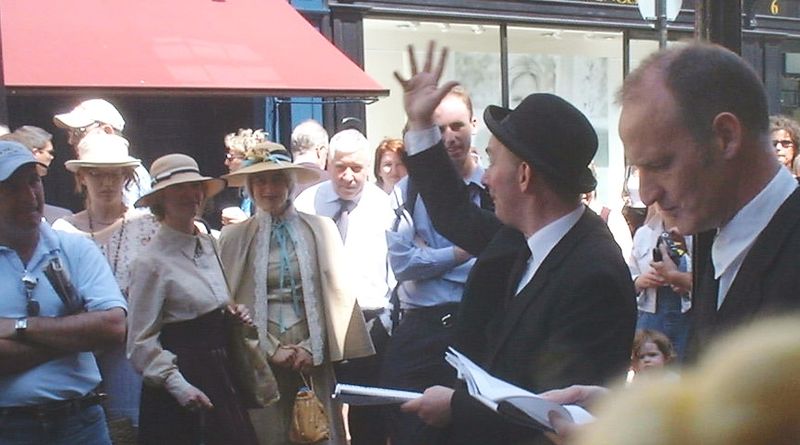In anticipation of the publication of Sally Rooney's Beautiful World, Where Are You September 7, we invite you to take a tour of Dublin from a literary perspective with our "beyond the book" article:
 The backdrop of Sally Rooney's Beautiful World, Where Are You is the city of Dublin and its environs. Rooney herself lives in this UNESCO City of Literature, a metropolis that boasts a flourishing literary scene and an impressive inventory of influential authors, poets and playwrights. The streets of the vibrant capital are infused with the presence of its bookish greats, with landmarks never more than a few minutes away.
The backdrop of Sally Rooney's Beautiful World, Where Are You is the city of Dublin and its environs. Rooney herself lives in this UNESCO City of Literature, a metropolis that boasts a flourishing literary scene and an impressive inventory of influential authors, poets and playwrights. The streets of the vibrant capital are infused with the presence of its bookish greats, with landmarks never more than a few minutes away.
Cross a bridge over the River Liffey, and it most likely has a literary connection — three are named after Sean O'Casey, Samuel Beckett and James Joyce, the last of which faces the house mentioned in "The Dead," the final story in the author's Dubliners: "the dark, gaunt house on Usher's Island." Dublin even has its own unofficial literary holiday — Bloomsday — designated as acknowledgement of one of Joyce's most acclaimed novels, Ulysses, which recounts a day in the life of Leopold Bloom (the book's protagonist): June 16, 1904.
Visitors to Dublin can bask in the wealth of literary luxury this city has to offer. What follows are some of its most celebrated libraries, bookshops, pubs and eateries.
He entered Davy Byrnes. Moral pub. He doesn't chat. Stands a drink now and then. But in a leap year once in four. Cashed a cheque for me once.
Davy Byrne came forward from the hindbar in tuckstitched shirtsleeves, cleaning his lips with two wipes of his napkin. Herring's blush. Whose smile upon each feature plays with such and such replete. Too much fat on the parsnips.
The pub's interior is something of a medley of styles, with a colorful ceiling, murals of historic Dublin and small statues adorning the area behind the bar. Joyce frequented this pub and knew Davy Byrne himself, who founded the establishment in the 1880s.
Also mentioned in Ulysses is the Shelbourne Hotel's 1824 Bar. The 5-star hotel has been a favorite of celebrities past and present, including Charlie Chaplin and Elizabeth Taylor, as well as literary heavyweights like William Thackeray and Seamus Heaney. Elizabeth Bowen even wrote a book, The Shelbourne, about the hotel, which is located at St. Stephen's Green. The 1824 Bar, with its decadent dark paneling and green leather furniture, can be found at the top of the Shelbourne's grand staircase.
Of course, the aforementioned venues are simply the tip of Dublin's literary iceberg; there are many more quirky and significant links to the city's rich creative heritage. The Abbey Theatre, for example, is revered for its connection to Yeats, who opened the venue with Lady Gregory in 1904. It is well worth a visit simply because of its history and its relative affordability.
 Joyce once famously commented, "When I die Dublin will be written in my heart." Today, literary Dublin will surely touch the heart of any literature enthusiast.
Joyce once famously commented, "When I die Dublin will be written in my heart." Today, literary Dublin will surely touch the heart of any literature enthusiast.
This article by Amanda Ellison has been written to accompany BookBrowse's upcoming review of Beautiful World, Where Are You by Sally Rooney. It is one of the thousands of "beyond the book" articles to be found on BookBrowse.
Bloomsday performers outside Davy Byrnes pub in Dublin, 2003, via Wikimedia Commons